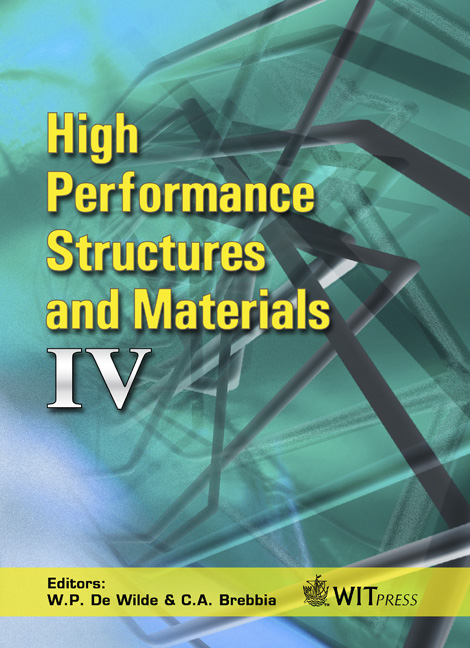Structural Optimization Of Conceptual Aerospace Vehicles
Price
Free (open access)
Transaction
Volume
97
Pages
9
Page Range
411 - 419
Published
2008
Size
1,273 kb
Paper DOI
10.2495/HPSM080421
Copyright
WIT Press
Author(s)
G. A. Hrinda
Abstract
Aerospace vehicle structures must be optimized for mass to maximize the mission payload. During the conceptual design phase, structures must be optimized to accurately predict the mass of the design. Analysis methods that are used in sizing members should allow for the selection of a variety of metallic and composite materials and user-defined geometry constraints. Rapid vehicle structural analysis is often necessary to improve the fidelity and the results that are obtained during the preliminary design. Recent experiences are highlighted that utilize the Collier Research Corporation’s Hypersizer® toolset to optimize structural concepts. Keywords: finite-element analysis, optimization, conceptual design, composites. 1 Introduction NASA’s retirement of the Space Shuttle in 2010 and the goals for advancing human space exploration have led to many opportunities for designing new spacecraft structures [1]. The ability to carry a mission forward by developing credible structural estimates in a short design cycle has become vital to mission planners. Traditional methods of analysis that use detailed finite-element models (FEM) can and have delayed concept development; thus, the search for tools that can quickly size structures has increased. Analysis methods must emphasize structural components that define major load paths and major weight contributors. A structural tool also should easily define the best materials that lead to a lightweight design. This includes simultaneously choosing the optimizing geometry and matching it to a metallic or composite material. The ease with which a tool can perform an optimization will impact the quality of the structural design that is provided to mission planners.
Keywords
finite-element analysis, optimization, conceptual design, composites.





